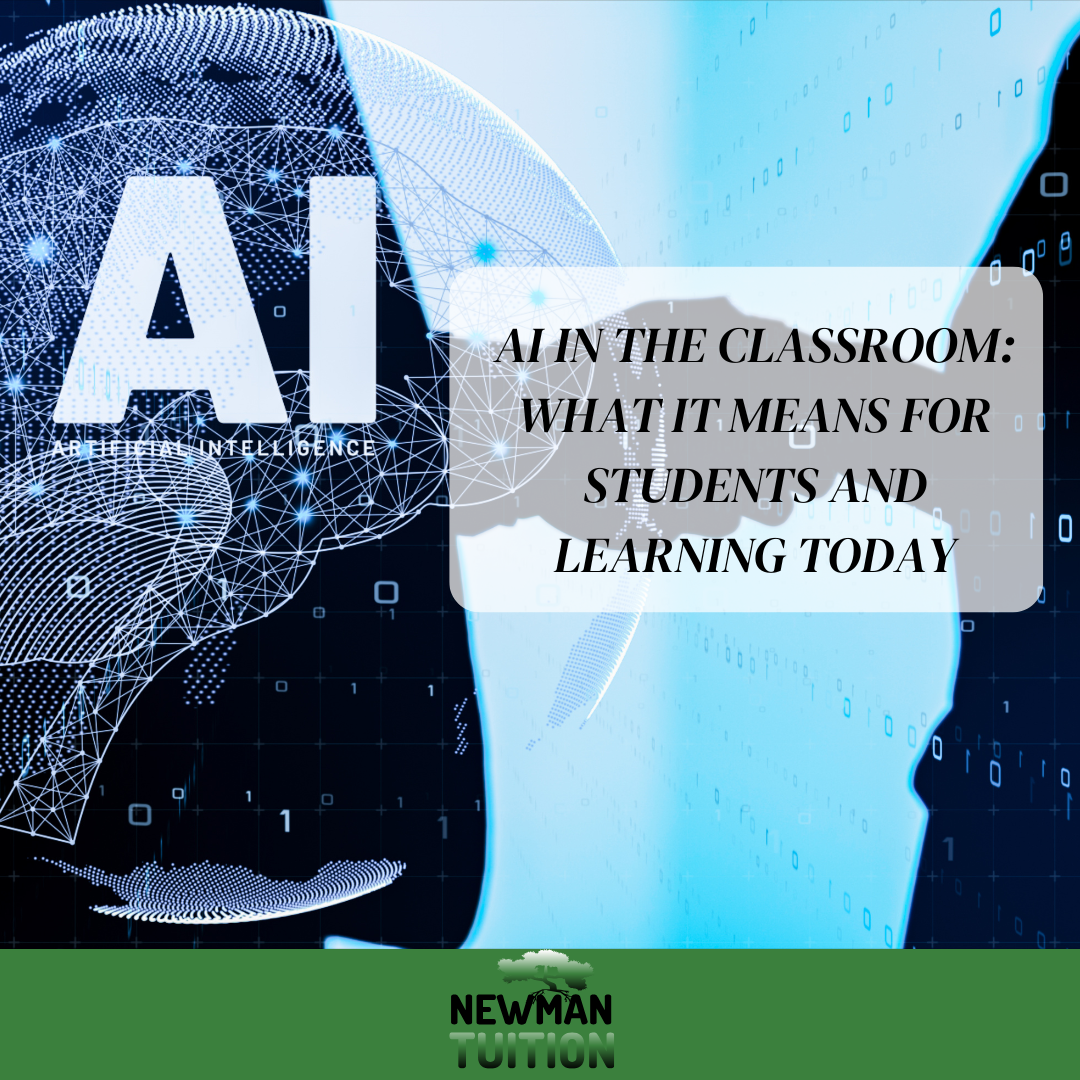AI in the Classroom: What It Means for Students and Learning Today

The use of Artificial Intelligence (AI) in education is no longer a distant vision—it’s already transforming classrooms, tutoring, and the way students learn across the UK. From personalised learning apps to automated marking systems, AI is unlocking new possibilities for educators and learners alike. But as with any innovation, it brings both opportunities and challenges.
What Are the Opportunities?
1. Personalised Learning Support
AI can adapt to individual student needs, offering tailored feedback and practice. This is particularly helpful for students with different learning speeds or styles. Platforms powered by AI can identify gaps in knowledge and recommend targeted resources, enabling more efficient progress.
2. Smart Tutoring Tools
Online tools like chatbots or AI tutors can support revision, answer questions, and guide students through difficult concepts—acting as a complement to live tuition. While they can’t replace the human element, they’re valuable for independent learning between sessions.
3. Time-Saving for Teachers and Tutors
AI can handle repetitive administrative tasks such as marking quizzes, organising schedules, or even generating lesson plans. This gives educators and tutors more time to focus on high-impact teaching and 1:1 student support.
4. Early Identification of Learning Needs
With enough data, AI can help identify learning difficulties earlier by spotting patterns in student behaviour, attendance, or academic performance. Early intervention can make a significant difference in outcomes, especially for students with SEN (Special Educational Needs).
What Are the Challenges?
1. Over-Reliance on Technology
While AI can support learning, it should never replace human interaction. Strong relationships with teachers and tutors remain central to motivation, confidence, and progress. Students benefit most when AI is used as a tool, not a substitute.
2. Data Privacy and Ethics
AI systems rely on data to function effectively—but who controls this data, and how securely is it stored? Parents and schools must ensure that student information is handled responsibly and complies with GDPR and safeguarding standards.
3. Widening the Digital Divide
Not all students have equal access to devices, high-speed internet, or digital literacy at home. As AI becomes more embedded in education, it’s crucial to ensure that no student is left behind due to lack of resources.
4. Questioning Original Thinking
AI tools like ChatGPT or Grammarly can support essay writing or idea generation, but they also raise concerns about academic honesty. Encouraging original thought, problem-solving, and independent expression must remain a top priority.
How Newman Tuition Is Responding
At Newman Tuition, we embrace technology that enhances learning—but always with a human-first approach. Our tutors are trained to use tools that support, not replace, personalised teaching. Whether it’s using adaptive software for revision or guiding students on how to use AI responsibly, we focus on ensuring every learner benefits from a thoughtful, balanced approach.
AI is here to stay. With the right guidance, it can empower students to take ownership of their learning and reach their potential. But it’s the partnership between human educators and smart tools that will truly shape the future of education.
Interested in how one-to-one tuition can support your child alongside today’s digital learning tools? Contact Newman Tuition to speak with our team.